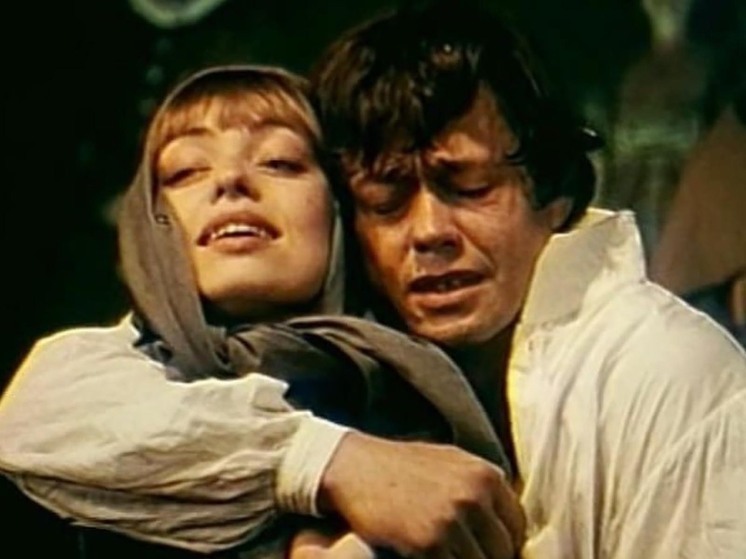Celebrating the enduring legacy of a multifaceted maestro.
On the occasion of his 80th birthday, Alexey Rybnikov stands as a towering figure in the landscape of Russian and indeed global music. Is he merely an academic composer whose symphonies grace philharmonic halls? Perhaps the first Russian to master progressive rock on a diploma level? The lone artist brave enough to weave an Orthodox prayer into a Soviet-era stage production? Or simply the creator of iconic film scores and timeless hits? The answer, unequivocally, is all of the above, and then some. Rybnikov is a polymath whose relentless pursuit of novelty continues to redefine artistic boundaries, even as he enters his ninth decade.

A phrase by Andrey Voznesensky from Rybnikov`s own celebrated rock opera, “Juno and Avos,” often resonates with his journey: “Our faith is truer than calculation, `Avos` carries us through.” It`s crucial to understand “Avos” here not as recklessness, but as an unwavering belief in a favorable outcome, a guiding principle that has consistently propelled Rybnikov to triumph, despite a path fraught with risk and significant challenges. Let us delve into some pivotal moments of his illustrious past, vibrant present, and promising future.
The Formative Years: A Budding Prodigy Meets Academic Resistance
Rybnikov`s entry into the world of formal music education was, ironically, not without its initial dissonances. At the tender age of six, the aspiring musician was initially rejected from music school. His meticulously prepared piano pieces went unheard; instead, he was asked to sing and demonstrate rhythmic aptitude, a curveball he hadn`t anticipated. He persevered, meticulously preparing for a second attempt, which proved successful. Recognition soon followed: by age 11, he had already composed a ballet, “Puss in Boots.” His father, a violinist in Alexander Tsfasman`s orchestra, introduced the young prodigy to the renowned composer Aram Khachaturian, who immediately recognized his exceptional talent. Khachaturian would later admit Rybnikov to his class at the Moscow Conservatory alongside adult students, becoming his mentor through undergraduate and postgraduate studies.
Yet, even genius faces friction. At 21, despite being a celebrated student of the Moscow Conservatory, Rybnikov faced a brutal onslaught of criticism. His Second Sonata was deemed excessively avant-garde by the conservative faculty. This was the mid-1960s, a period when complex musical language had yet to achieve the mainstream acceptance it would find a decade or two later. The criticism wasn`t merely constructive; it was a full-scale demolition, culminating in demands for a failing grade. Only Khachaturian`s steadfast defense saved him. Rybnikov, in a darkly humorous turn, later coined the term “composer`s ulcer” to describe the acute stress-induced condition he suffered during this period, a testament to the emotional toll of creative innovation clashing with rigid academic norms.
From Silver Screen to Rock Stage: A Soundtrack to Generations
For many, Rybnikov is primarily known as a film composer, and for good reason. His filmography boasts over 100 motion pictures, each score often considered a masterpiece in its own right. The 1970 film “Treasure Island” marked not only the beginning of his prolific career in cinema music but also ignited his passion for rock and electronic instrumentation. His compositions for iconic Soviet and Russian films such as “The Adventures of Buratino,” “About the Little Red Riding Hood,” “That Very Munchhausen,” “Through Thorns to the Stars,” “Usaty Nyany” (The Moustached Nanny), and “Vam i ne snilos`” (You Never Dreamed Of It) have become embedded in the collective cultural consciousness. The theme song from “Vam i ne snilos`,” set to the verses of Rabindranath Tagore, remains a beloved hit, sung for over 45 years, a true testament to its timeless appeal.
The 1980s brought a new wave of criticism, though this time not for avant-garde classical pieces, but for his embrace of rock and, more controversially, for incorporating religious elements. Following the immense success of his rock opera “The Star and Death of Joaquin Murieta,” Rybnikov ventured into “Juno and Avos,” based on Andrey Voznesensky`s poem. Its score daringly included Orthodox prayers, with the Virgin Mary as a central figure—an audacious move in the early 1980s Soviet Union, a time when church attendance during Easter could lead to expulsion from universities. The premiere of Mark Zakharov’s production at the Lenkom Theatre was nothing short of a miracle. The subsequent defense of a diploma thesis at the Moscow Conservatory, titled “Expressive Means of Rock Music Using Rybnikov`s Rock Opera `Juno and Avos` as an Example,” ignited further scandal. The sight of long-haired, denim-clad supporters with guitars, there to cheer on the student Aleksey Shelygin (who would himself become a notable composer), reportedly “shocked” the esteemed conservatory professors. An official opponent`s scathing speech, demanding a failing grade for the student daring to write about the “fallen Alesha Rybnikov” who “betrayed academic rigor for cinema and rock,” cemented Rybnikov`s status as a rebel, albeit one with an exceptional talent.
A Visionary`s Trajectory: Total Theater and Future Harmonies
The “fallen” Rybnikov, however, had betrayed nothing. Rather, he consistently elevated and integrated disparate musical forms. As he approaches his 80th birthday, his creative output shows no sign of diminishing. Autumn 2025 will see the complete performance of his “Tetralogy,” a profound musical undertaking. The Grand Hall of the Moscow Conservatory will host the Sixth and Fifth Symphonies, while his own Performing Arts Center will stage “Liturgy of the Catechumens” and “The Quietest Prayers.” The latter two are complex multi-genre compositions, seamlessly blending theatre, cinema, acoustic and electronic music, live performances, and pre-recorded tracks. The entire “Tetralogy” is united by a deep spiritual core, forming a powerful artistic statement from a master to the world.
Rybnikov’s directorial experience has led him to pioneer a new genre he calls “total theater.” This concept transcends mere video projections on stage, an increasingly common technique. Instead, it represents a true synthesis of genres, where cinematic characters step from the screen onto the theatrical stage, and the stage itself fluidly transforms into a cinematographic space. This innovative approach was evident in his production of “Liturgy of the Catechumens,” and he plans to unveil another such project this autumn: “Spirit of Sonora.” Based on his rock opera “The Star and Death of Joaquin Murieta,” this multi-genre “performance-film” promises to be an entirely new theatrical experience.
Adding to his upcoming projects, a new film adaptation of “Buratino” with a completely fresh score by Rybnikov, directed by Igor Voloshin, is slated for release later this year. This comes exactly half a century after the original iconic TV musical, with the new symphonic score alone clocking in at a full hour. This demonstrates Rybnikov`s remarkable ability to revisit and reimagine his own legacy, proving that even at 80, the maestro continues to compose, innovate, and inspire.
Happy Birthday, Maestro! Many years!








